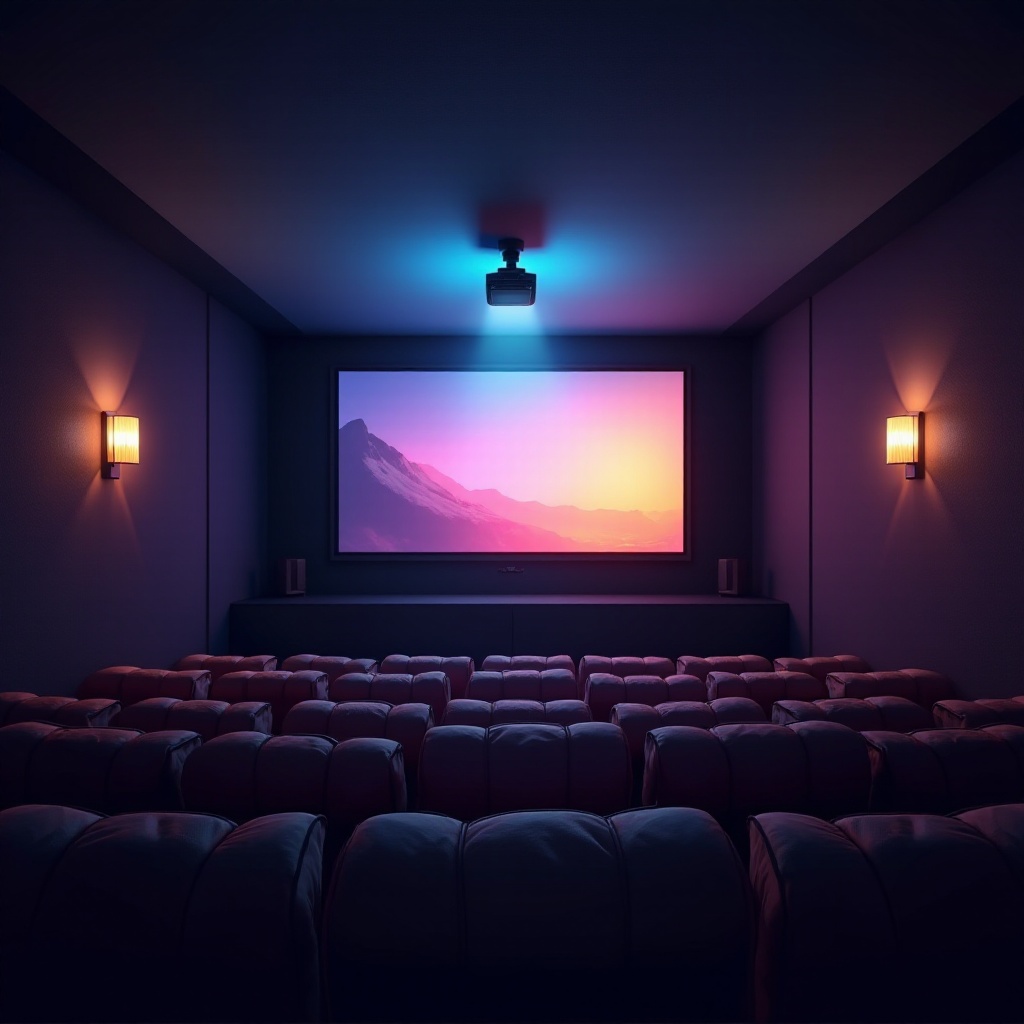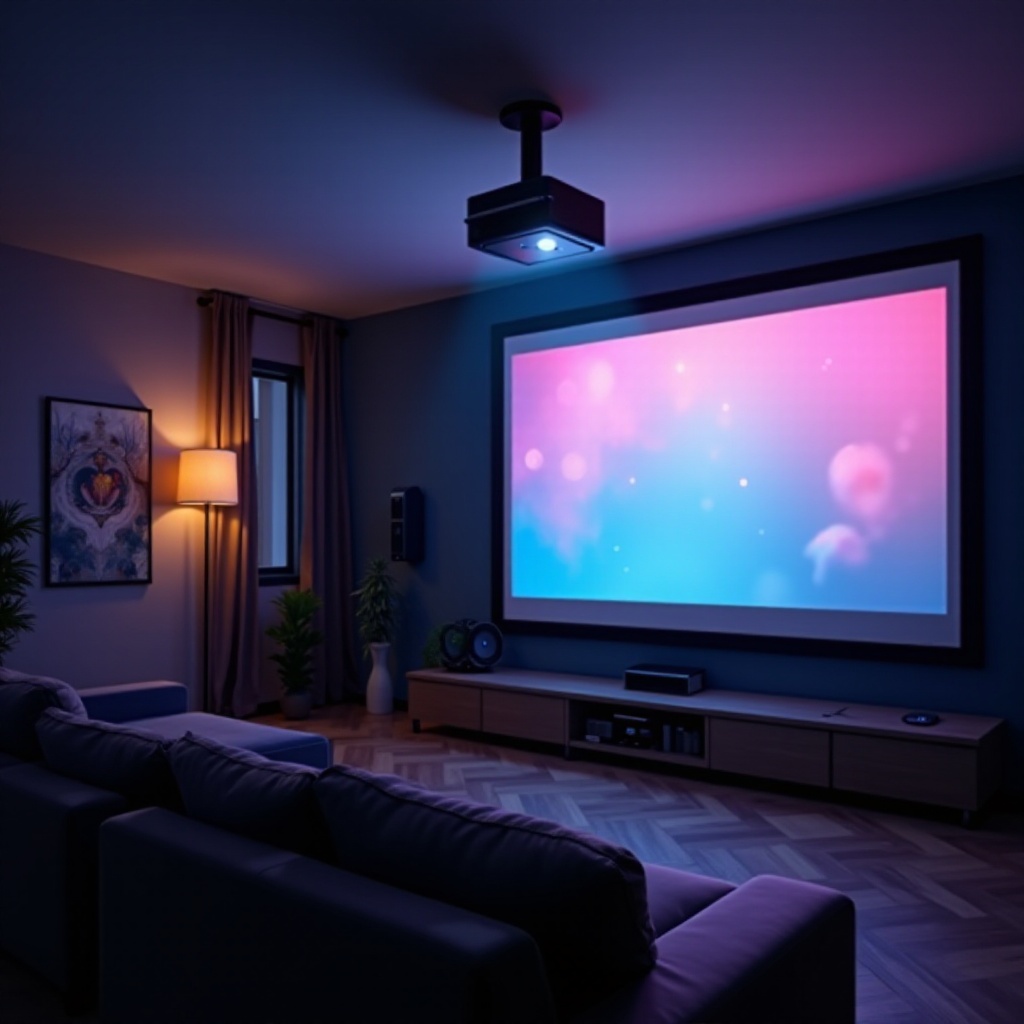What is a Good Projector for a Home Theater?
Introduction
Creating a home theater is an exciting endeavor, but choosing the right projector can be daunting. The perfect projector can transform your living space into an immersive entertainment hub. This guide aims to help you navigate through the options and features essential for selecting a good projector for your home theater.
Setting up a home theater is not just about having a large screen; the choice of projector plays a crucial role. With advancements in technology, projectors now come with a variety of features tailored for different needs and preferences. Understanding these features can make your decision-making process smoother.

Key Features to Consider for a Home Theater Projector
When shopping for a home theater projector, several key features should be top of mind.
Resolution and Image Quality
High resolution ensures that your movies and shows display crisp and clear. Opt for at least a 1080p projector, but if your budget allows, a 4K projector offers superior image quality with incredibly detailed visuals.
Brightness (Lumens)
The brightness of a projector is measured in lumens. For a home theater setup where light can be controlled, 1,500 to 3,000 lumens are ideal. Higher lumens are better for areas with ambient light.
Contrast Ratio
The contrast ratio indicates the difference between the darkest blacks and the brightest whites. A higher contrast ratio contributes to deeper blacks and more vibrant colors, making the viewing experience more dynamic.
Throw Distance and Screen Size
Throw distance is the distance your projector needs to be from the screen to produce a desired image size. Ensure your room dimensions align with the projector’s throw distance and can comfortably accommodate the screen size you prefer.
Connectivity Options
Modern projectors offer multiple connectivity options. Look for HDMI, USB, and wireless capabilities to ensure that your projector can easily connect with your devices, like Blu-ray players, gaming consoles, and streaming sticks.
Types of Home Theater Projectors
Understanding the different types of projectors is key to making an informed decision.
LCD Projectors
LCD (Liquid Crystal Display) projectors are popular for their excellent color accuracy and brightness. They are generally less expensive and offer vibrant, sharp images but may suffer from lower contrast ratios compared to DLP projectors.
DLP Projectors
DLP (Digital Light Processing) projectors are known for delivering high contrast ratios and smooth motion, making them ideal for watching fast-paced sports or action movies. However, some users may notice a ‘rainbow effect,’ a brief flicker of red, green, and blue colors.
Laser Projectors
Laser projectors are highly durable and provide consistent brightness over a longer period. They also offer superior color accuracy and are more energy-efficient. Though more expensive, their long lifespan and minimal maintenance requirements make them a worthwhile investment.
LED Projectors
LED projectors use light-emitting diodes and have a longer lifespan compared to traditional lamps. They consume less power and generate less heat, making them quieter. However, they usually have lower brightness levels compared to other projector types.
Reviews of the Best Home Theater Projectors for 2024
Here are some of the top projectors for various budgets in 2024. After considering the types, it’s time to delve into specific models that stand out in the market. Whether you are looking for a budget-friendly option or a high-end projector, there are excellent choices for every need.
Best Budget-Friendly Projectors
- ViewSonic PA503W
- Resolution: 1280×800
- Brightness: 3,600 lumens
-
A reliable option with decent brightness and good image quality for the price.
-
Epson VS250
- Resolution: 800×600
- Brightness: 3,200 lumens
- Known for its ease of setup and balance of performance and affordability.
Best Mid-Range Projectors
- BenQ HT2050A
- Resolution: 1080p
- Brightness: 2,200 lumens
-
Offers an excellent balance between price and performance with impressive color accuracy and image quality.
-
Epson Home Cinema 2150
- Resolution: 1080p
- Brightness: 2,500 lumens
- Known for its vivid colors and wireless streaming capabilities.
Best High-End Projectors
- Sony VPL-VW295ES
- Resolution: 4K
- Brightness: 1,500 lumens
-
Boasts incredible image quality and features native 4K resolution with HDR support.
-
JVC DLA-NX7
- Resolution: 4K
- Brightness: 1,900 lumens
- Known for its exceptional contrast ratio and deep black levels, delivering a premium cinema-like experience.
Installation and Setup Tips for Optimal Performance
To get the most out of your projector, careful installation and setup are crucial. Proper installation not only enhances your viewing experience but also extends the projector’s lifespan. Here are some tips that can help.
Ideal Room Settings
- Choose a room where you can control the lighting to ensure the best picture quality.
- Dark walls and ceilings can help reduce reflections and enhance the viewing experience.
Mounting and Positioning the Projector
- Position the projector in line with the center of the screen, either mounted on the ceiling or placed on a stable surface.
- Ensure the throw distance aligns with the projector’s specifications and desired screen size.
Calibration Tips
- Adjust the projector’s settings for brightness, contrast, color temperature, and sharpness according to your room’s lighting conditions.
- Use calibration tools or software to fine-tune the picture quality for optimal performance.

Projector Maintenance and Troubleshooting
Proper maintenance can prolong your projector’s life, and knowing how to troubleshoot common issues saves you time and money. Regular care ensures that your projector performs at its best for years.
Essential Maintenance Tips
- Clean the air filters and vents regularly to prevent overheating.
- Dust the lens gently with a microfiber cloth to maintain image clarity.
- Replace the lamp as recommended by the manufacturer to ensure consistent brightness.
Common Troubleshooting Issues
- No Power: Check the power connection and ensure the outlet is working.
- Blurry Image: Adjust the focus and ensure the projector is at the correct distance from the screen.
- Overheating: Verify that vents are not blocked and clean any accumulated dust.

Conclusion
Selecting a good projector for your home theater involves understanding the critical features, types, and proper setup and maintenance. Whether you are on a budget or seeking a high-end model, the right projector can significantly enhance your home entertainment experience. The right projector can bring the magic of cinema right into your living room, creating unforgettable viewing experiences for you and your loved ones.
Frequently Asked Questions
How do I choose a home theater projector?
Consider key factors such as resolution, brightness, contrast ratio, throw distance, and connectivity options. Assess your room’s lighting and size to guide your choice.
What is the ideal brightness for a home theater projector?
For a controlled lighting environment, a projector with 1,500 to 3,000 lumens is ideal. Higher lumens are suitable for rooms with more ambient light.
How long do projector bulbs last?
Projector bulbs typically last between 2,000 to 5,000 hours. Some modern projectors, especially those with LED and laser technology, offer even longer lifespans.
